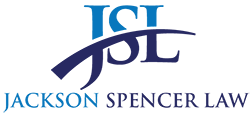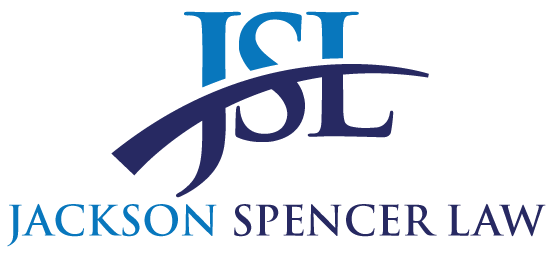The COVID-19 pandemic has affected nearly every facet of American life – and every facet of U.S. law to boot. As employee rights lawyers, we have seen the myriad ways coronavirus has impacted workers. Regulatory violations are on the rise and employees are blowing the whistle (where we get the term “whistleblower”) on corporate fraud and wrongdoing.
Unfortunately, some of our current laws are not enough to protect whistleblowers during a pandemic. Here are just some of the events that illustrate the need for extra COVID-related whistleblower protection:
- Corporations are silencing employees from disclosing coronavirus outbreaks in the workplace
- Employees are struggling with unsafe working conditions
- Workers are getting fired for asking that their employers provide PPE
- Employees of large corporations are unionizing and protesting their treatment during the pandemic
In this article we will take a look at the COVID-19 Whistleblower Act, which has been introduced in Congress, and why it is so important for workers. We’ll offer a prediction on whether the legislation is likely to pass now that a new President is in office, and close with some tips on reporting unlawful activity in the wake of a pandemic.
Let’s start with a brief discussion of the COVID-19 Whistleblower Act, because with all the trending news over the past year, there is a good chance this legislation slipped under your radar.
At Jackson Spencer Law, we represent employees who have questions about their workplaces’ responses to COVID-19.
Visit our services page for information about all the ways we can help.
What Is the COVID-19 Whistleblower Protection Act?
In June 2020, a group of congressional representatives introduced the COVID-19 Whistleblower Protection Act. The legislation aims to protect both private sector workers and government contractors who report fraud, misuse, and other misconduct related to COVID-19 funds.
One popular source of COVID-19 related funds is the Paycheck Protection Program, (PPP) which was created as part of the CARES Act to support businesses that have been affected by the pandemic. The primary goal of that legislation was to keep workers on a company’s payroll, even if the company experienced losses as a result of quarantines and social distancing. According to the U.S. Small Business Administration (SBA), over $521 billion in PPP loans have been disbursed to U.S. businesses. Unfortunately, not all businesses have used those funds lawfully, and at least 65 individuals were charged with fraud within 7 months of the program’s creation.
The government has a vested interest in discovering COVID-19 fraud and misconduct, but it’s unlikely they will be able to uncover all fraudulent activity without some outside help. This is where whistleblowers come into the picture. As employment lawyers, we know it takes a lot of courage to report employer misconduct. That is why whistleblower protection laws are so important.
If the COVID-19 Whistleblower Protection Act passes, any employee who reports misconduct or fraud will be protected from retaliation for assisting the government. This means employers will be prohibited from firing, demoting, or discriminating against employees who disclose wrongdoing to the appropriate government office.
(By the way, if you suspect that your employer is engaging in fraud or abusing their PPP loan, check out our article on the subject here to learn more about reporting fraud.)
Current Whistleblower Protections and Their Weaknesses
You may already be familiar with whistleblower protection. We have written about whistleblowers in the past, because whistleblower laws are nothing new. The Internal Revenue Service (IRS), the Small Business Administration, and the Occupational Safety and Health Administration (OSHA) are all subject to whistleblowers laws. However, certain weaknesses in those whistleblower protections became abundantly clear during the coronavirus pandemic.
OSHA, in particular, faced criticism for their lack of activity and guidance. In the early stages of the pandemic, when healthcare workers faced a dire shortage of personal protective equipment (PPE), many employees raised concerns about their safety. In return, some hospitals took disciplinary action against employees who spoke out about the lack of PPE. While OSHA’s whistleblower provisions state that employees are protected for “communicating with the media about an unsafe or unhealthful workplace condition,” the organization remained virtually silent as healthcare workers faced retaliation for this supposedly protected activity.
OSHA’s lack of guidance on retaliation prohibitions during the pandemic is problematic because employees only have a 30-day window to file a retaliation claim under the OSH Act. Since many workers are unaware their employer’s actions are unlawful, they are not filing claims that might otherwise put an end to the retaliation. The OSH Act also does not give OSHA authority to reinstate employees who were unlawfully terminated while their case is pending. This is a huge problem because some cases can take months or even years to reach a judgment.
While OSHA is only one organization facing weaknesses in whistleblower protection, it is an organization that should be doing all it can to protect the health and safety of workers during a pandemic. Arguably, they have fallen short of meeting this goal during the pandemic. Look no further than the daily news to see how many workers are struggling with an unsafe working environment. Large corporations like Amazon and big-box grocery chains that employ mostly essential workers have been targets of much criticism over workplace safety (or lack thereof) since the pandemic began.
If there is one silver lining to the cloud that is COVID-19, it’s that the pandemic has turned a spotlight on workers’ rights. As a result, OSHA has seen a backlog of complaints that they cannot investigate in a timely manner. In the meantime, the employees who made those complaints are lacking protection. This is precisely the kind of problem the COVID-19 Whistleblower Protection Act aims to prevent.
Is the COVID-19 Whistleblower Protection Act Likely to Pass Now?
When the COVID-19 Whistleblower Protection Act was first introduced back in June 2019, it was sponsored by two prominent senators: Kamala Harris and Jamie Raskin. Since the introduction of the bill, Sen. Harris has been sworn in as Vice President of the United States and Democrats have secured a narrow majority in both the House and Senate. In 2020, Democrats were proponents of the bill (and historically supportive of whistleblower provisions in general).
Since inauguration, the Biden Administration has proposed a $1.9 trillion relief package, which includes provisions that would allow employees to qualify for unemployment relief if they left their employer over safety concerns related to the pandemic. While this is not whistleblower protection, per se, it shows the Administration’s willingness to stand up for employees facing unsafe working conditions. The relief package appears to be a high priority among both the executive and legislative branches, so it will likely move forward much faster than the Whistleblower Protection Act.
The good news is that the Whistleblower Protection Act has a better chance of passing now that one of its original sponsors (Kamala Harris) has tie-breaking power over any legislation that stalls in the U.S. Senate. The heavily Democratic House of Representatives is likely to pass the legislation to the Senate, which will probably vote along party lines in favor of the Act. However, any legislation is highly speculative (especially with the unpredictable year we have had from March 2020 until now) and our predictions for the future are merely a guess.
What to Do if You Suspect COVID-19-Related Misconduct
If there is anything we have learned over the past year it is that uncertainty breeds chaos. We’ve seen so much transpire: coronavirus has killed more than 463,000 Americans, the stock market saw a 30% decline in less than a month, more than 22 million Americans lost their jobs, protests erupted, and rioters stormed the U.S. Capitol. Piecing our lives back together will be a monumental feat, but one component that will be absolutely necessary is transparency. The government, corporations, and individuals need accountability now more than ever, and the only way we can move forward is through a mutual respect for the rule of law.
If you suspect that your employer is misusing PPP funds, hold them accountable by reporting the activity to the SBA. If you are experiencing unsafe working conditions, file a complaint with your local OSHA office. If you see retaliation in the workplace, or notice employees are being fired for speaking out, do not hesitate to tell someone. It’s possible that whistleblowing has never been so important – for the rights of all American workers and their families.
But whistleblower laws can be confusing, and not all government agencies operate according to the same rules. If you feel that unlawful activity is happening in your workplace – from discrimination to retaliation, we can help you navigate all the red tape. We can help you determine if you have a case and how to improve your chances of winning your claim.
To learn more about whistleblower protections and workers’ rights, contact our office for a free consultation.



